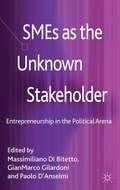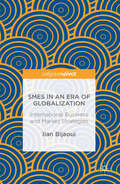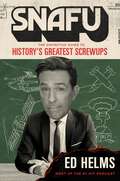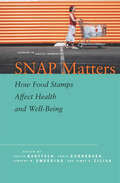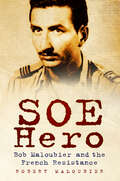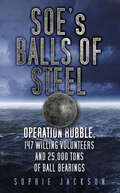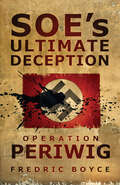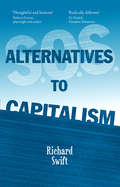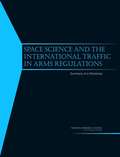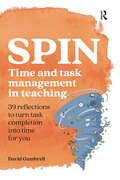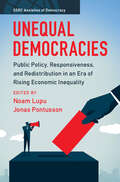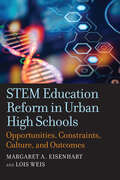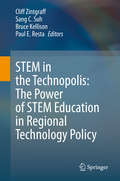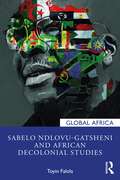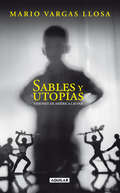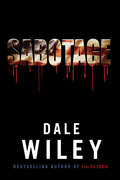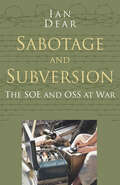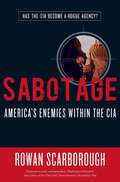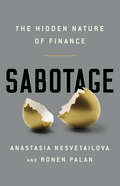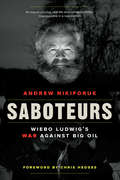- Table View
- List View
SINGAPORE: WHICH DEMOCRACY? External influences and Asian values in the formation process of a democratic model
by Mihaiela Corsatea Mauro GilardiIn the dominant dynamics of our days marks, with increasing force and vehemence since the fateful events from 9/11, the debate about the relationship between Western culture and the other cultures takes places. In this analysis it is highlighted how the capacity and the need to export a political model, of undeniable Western matrix, in areas of the world characterized by an individual substrate and unique characteristics, is even more difficult to realize. The examples cited, such as Singapore, Japan, remember how the values of a culture are not forcibly, on the whole, changeable from the outside. A journey in the discovery in Singapore, where the nation dominates the community, society stays above the self, family is a central social unit, the respect and the help prioritize the consent and not the conflict between different races and religions. The essay, published for the first time in 2006, retains its validity and the insights offered, especially in light of the most recent events that have characterized the conflicts and revolutions from the last decade.
SINGAPURA: que tipo de democracia?
by Antonio Costa Mauro GilardiNas dinâmicas dominantes a que temos recurso nos dias de hoje, com a força e veemência crescente daquele fatídico 11/9, o debate sobre a relação entre cultura ocidental e as outras culturas. Nesta análise evidencia-se como a capacidade e a necessidade de exportar um modelo político, de inegável matriz ocidental, em áreas do mundo caracterizadas por um substrato próprio e personagens únicos, seja, pelo menos, difícil de realizar. Os exemplos citados, Singapura, Japão, lembram o quanto os valores próprios de uma cultura não são obrigatoriamente, na totalidade, modificáveis a partir do exterior. Uma viagem à descoberta de Singapura, onde domina o país perante a comunidade, a sociedade acima de si própria, a família como uma unidade social central, o respeito e a ajuda, para privilegiar o consenso e não o conflito entre raças e religiões diferentes. O ensaio, publicado pela primeira vez em 2006, mantém a sua validade tal como os pontos de reflexão que ele oferece, especialmente à luz dos recentes acontecimentos que têm caracterizado os conflitos e as revoluções na última década
SMEs as the Unknown Stakeholder
by Massimiliano Di BitettoInvestigates how and to what extent the self-employed and micro-enterprise workers can be represented in the social arena. A cross-sector approach to responsibility for government as well as private businesses.
SMEs in an Era of Globalization
by Ilan BijaouiThis book identifies the driving forces behind globalization and proposes innovative ways for small and medium-enterprises (SMEs) to confront them. More than ever, sustainable competitive advantage requires SMEs to continually adapt their strategy and confront new and current competition in the international market. SMEs working with multinational companies could also benefit from winning strategies based on a sensible analysis of rational and irrational phenomena at the micro- and macro-economic levels. This book uses different models developed and established through international business experiences to determine the relevant strategy in the global market. It illustrates each model through real, successful case studies of globalization of factor, efficiency, and innovation-driven SMEs. It will benefit scholars of entrepreneurship, international business, regional development as well as managers, governmental institutions, and regional development, and consultants to SMEs.
SNAFU: The Definitive Guide to History's Greatest Screwups
by Ed HelmsFrom actor, comedian, writer, and host of the hit history podcast SNAFU, Ed Helms brings you an absurdly entertaining look at history’s biggest blunders, complete with lively illustrations. <p> History contains a plethora of insane screwups—otherwise known as SNAFUs. Coined during World War I, SNAFU is an acronym that stands for Situation Normal: All F*cked Up. In other words, “things are pretty screwed up, but aren’t they always?” <p> Spanning from the 1950’s to the 2000’s, Ed Helms steps in as unofficial history teacher for a deep dive into each decade’s craziest SNAFUs. From planting nukes on the moon to training felines as CIA spies to weaponizing the weather, this book will unpack the incredibly ironic decision-making and hilariously terrifying aftermath of America’s biggest mishaps. <p> Filled with sharp humor, SNAFU is a wild ride through time that not only entertains but offers fresh insights that just might prevent history from repeating itself again and again. <b>New York Times Bestseller</b>
SNAP Matters
by James Ziliak Judith Bartfeld Timothy Smeeding Craig GundersenIn 1963, President Kennedy proposed making permanent a small pilot project called the Food Stamp Program (FSP). By 2013, the program's fiftieth year, more than one in seven Americans received benefits at a cost of nearly $80 billion. Renamed the Supplemental Nutrition Assistance Program (SNAP) in 2008, it currently faces sharp political pressure, but the social science research necessary to guide policy is still nascent. In SNAP Matters, Judith Bartfeld, Craig Gundersen, Timothy M. Smeeding, and James P. Ziliak bring together top scholars to begin asking and answering the questions that matter. For example, what are the antipoverty effects of SNAP? Does SNAP cause obesity? Or does it improve nutrition and health more broadly? To what extent does SNAP work in tandem with other programs, such as school breakfast and lunch? Overall, the volume concludes that SNAP is highly responsive to macroeconomic pressures and is one of the most effective antipoverty programs in the safety net, but the volume also encourages policymakers, students, and researchers to continue examining this major pillar of social assistance in America.
SOCIAL RIGHTS IN EUROPE IN AN AGE OF AUSTERITY (Critical Studies in Jurisprudence)
by Simon Halliday Stefano Civitarese MatteucciThis collection of essays examines the promise and limits of social rights in Europe in a time of austerity. Presenting in the first instance five national case studies, representing the biggest European economies (UK, France, Germany, Italy and Spain), it offers an account of recent reforms to social welfare and the attempts to resist them through litigation. The case studies are then used as a foundation for theory-building about social rights. This second group of chapters develops theory along two complementary lines: first, they explore the dynamics between social rights, public law, poverty and welfare in times of economic crisis; second, they consider the particular significance of the European context for articulations of, and struggles over, social rights. Employing a range and depth of expertise across Europe, the book constitutes a timely and highly significant contribution to socio-legal scholarship about the character and resilience of social rights in our national and regional constitutional settings.
SOE Hero: Bob Maloubier and the French Resistance
by Robert MaloubierRobert 'Bob' Maloubier, otherwise known as the French James Bond and as Churchill’s Secret Agent, led a life straight out of a spy thriller. At the age of just 19, he escaped occupied France and ended up in England, where he was given intensive training by the Special Operations Executive (SOE). Back in occupied France, Maloubier’s SOE duties saw him commit large-scale industrial sabotage in Le Havre and Rouen, suffer gunshot wounds while evading capture and be evacuated in the nick of time by 161 Special Duties Squadron. Always at the centre of the action, just after D-Day he was flown back to France alongside fellow agents Philippe Liewer, Violette Szabó and Jean Claude Guiet, where he operated in guerilla warfare conditions and destroyed vital bridges. After another mission with Force 136 in the Far East, the sheer wealth of experience Maloubier gathered during the war made him a perfect candidate to help found the French Secret Service, for whom he proved invaluable. Bob Maloubier was undoubtedly one of the Second World War’s most remarkable, courageous and flamboyant characters. His simply and uniquely told personal account of wartime spent as an SOE agent and with the French Resistance is poignant, brutally truthful, and is told here for the first time in English.
SOE's Balls of Steel: Operation Rubble, 147 Willing Volunteers and 25,000 Tons of Ball Bearings
by Sophie JacksonIn 1940 the Nazis hoped to cripple the British war effort by blockading Swedish cargo ships containing ball bearings, steel and tools vital for making arms and equipment. In desperation the newly formed SOE was asked to rescue these badly needed supplies and a daring escapade was dreamt, which involved sneaking in under the Germans' noses to steal the ships. It was a dangerous mission and the 147 men involved knew there was a high chance they would not come home. The terrifying operation to rescue cargoes of ball bearings in clunky transport ships, while trying to outrun the Luftwaffe and German navy, had never been attempted before. It was a success that was never repeated. Making use of newly released files from the National Archives, Sophie Jackson tells the story of a forgotten adventure that saved Britain and her troops from certain defeat, all because of brave men willing to sacrifice their lives for millions of small balls of steel.
SOE's Ultimate Deception: Operation Periwig
by Fredric BoyceIn the closing months of the Second World War, General Eisenhower exhorted the Western Allied forces to redouble their efforts to break the German will to resist. In considering this appeal, General Gubbins, whose Special Operations Executive was making a significant contribution to the liberation of occupied territory, was faced with a fundamental difficulty in the case of Germany. Although opposition to Nazism was present in some areas, it was neither organised nor pro-Allied. Then someone had the idea of creating an entirely fictional German resistance movement and 'selling it' to the Nazi security authorities. From January until April 1945, SOE rained propaganda leaflets on the hapless population fleeing the ruins of their cities and the oncoming Allied ground forces; they broadcast messages to the 'resistance'; they planted the most scandalous lies about eminent Nazis; and at the end they even dropped four agents on fictitious missions. This imaginative response to Ike's exhortation and the sheer audacity of the operation itself demand to be told to a wider audience.
SOS: Alternatives to Capitalism
by Richard SwiftFinancial collapse and crisis; disgust at bankers’ greed; the devastating effects of yawning inequality: all these and more have led to widespread dissatisfaction and disenchantment with capitalism. People are crying out for an alternative but are continually told that one does not exist. In this fully updated new edition Richard Swift examines the past shortcomings and present health of not one but many other paths to changing the world, including socialism, social democracy, anarchism, ecology, and degrowth. Combining the practical with the visionary, he shows that finding alternatives to capitalism is no longer an academic issue for the left – it is an urgent planetary necessity.
SPACE SCIENCE AND THE INTERNATIONAL TRAFFIC IN ARMS REGULATIONS: Summary of a Workshop
by National Research Council of the National AcademiesITAR, which controls defense trade, includes the U.S. Munitions List (USML) which specifies categories of defense articles and services covered by the regulations. In 1999, space satellites were added to the USML. In 2002 ITAR was amended to exclude U.S. universities from having to obtain ITAR licenses when performing fundamental research involving foreign countries and/or persons. Despite this provision, there remains considerable uncertainty among university researchers about whether the regulations apply to their research leading to a rather conservative interpretation of the regulations and the imposition of burdens that might not be necessary. To explore this concern, NASA asked the NRC to organize a workshop of all stakeholders on the implications of ITAR for space science. This book presents a summary of the workshop discussions including those on perspectives on recent developments and implementation of ITAR; overarching issues; problems arising from ITAR's implementation; and opportunities for near-term actions and improvements.
SPIN: Time and task management in teaching (Practical Teaching)
by David Gumbrell39 reflections to turn task completion into time for youYour time is precious – so use it well.With so many pulls on your time, and a changing environment, now more than ever it is vital that your time and task management is both targeted and efficient. If you can achieve this, you can allocate more time for yourself and so become a more relaxed and effective teacher. All too often to do list gets longer and longer which can impact on your enjoyment of the job and, more importantly, your mental health and well-being.Building on the strategies in his first two book, LIFT and RISK, David Gumbrell advocates that you need to focus your attention on giving the right plates a spin to save time, energy and attention that you can then allocate elsewhere. The 39 short, research-based chapters, punctuated with reflective questions, along with teacher interviews, together build into a significant body of knowledge to promote resilience and teacher retention.Praise for RISKA beautifully written book with David's characteristic use of rich metaphors and thoughtful narrative. This book will certainly help you make bolder and better decisions in the classroom and beyond. Adrian Bethune.
SSRC Anxieties of Democracy: Public Policy, Responsiveness, And Redistribution In An Era Of Rising Economic Inequality (Ssrc Anxieties Of Democracy Ser.)
by Jonas Pontusson Noam LupuSTEM Education Reform in Urban High Schools: Opportunities, Constraints, Culture, and Outcomes
by Lois Weis Margaret A. EisenhartSTEM Education Reform in Urban High Schools gives a nuanced view of the obstacles marginalized students face in STEM education—and explores how schools can better support STEM learners.Reporting the results of a nine-year ethnographic study, the book chronicles the outcomes of various STEM education reforms in eight public high schools with nonselective admissions policies and high proportions of low-income and minoritized students: four schools in Denver, Colorado, and four in Buffalo, New York.Margaret A. Eisenhart and Lois Weis follow the educational experiences of high-ability students from each school, tracking the students' high school-to-college-to-career trajectories. Through interviews with students, educators, and parents, as well as classroom and campus observations, the authors identify patterns in the educational paths of students who go on to great success in STEM occupations and those who do not. They discuss common mechanisms that undermine the stated goals of STEM programming—opportunity structures that are inequitable, erosion of program quality, and diversion of resources—as well as social and cultural constructs (the figured worlds of STEM) that exclude many minoritized students with potential for success from the STEM pipeline.On a broader scope, the book explores how and why STEM education reform efforts fail and succeed. With an eye toward greater access to STEM learning, the authors show how lessons of past measures can inform future STEM initiatives.
STEM in the Technopolis: The Power of STEM Education in Regional Technology Policy
by Sang C. Suh Cliff Zintgraff Bruce Kellison Paul E. RestaThis book addresses how forward-thinking local communities are integrating pre-college STEM education, STEM pedagogy, industry clusters, college programs, and local, state and national policies to improve educational experiences, drive local development, gain competitive advantage for the communities, and lead students to rewarding careers. This book consists of three sections: foundational principles, city/regional case studies from across the globe, and state and national context. The authors explore the hypothesis that when pre-college STEM education is integrated with city and regional development, regions can drive a virtuous cycle of education, economic development, and quality of life.Why should pre-college STEM education be included in regional technology policy? When local leaders talk about regional policy, they usually talk about how government, universities and industry should work together. This relationship is important, but what about the hundreds of millions of pre-college students, taught by tens of millions of teachers, supported by hundreds of thousands of volunteers, who deliver STEM education around the world? Leaders in the communities featured in STEM in the Technopolis have recognized the need to prepare students at an early age, and the power of real-world connections in the process. The authors advocate for this approach to be expanded. They describe how STEM pedagogy, priority industry clusters, cross-sector collaboration, and the local incarnations of global development challenges can be made to work together for the good of all citizens in local communities. This book will be of interest to government policymakers, school administrators, industry executives, and non-profit executives. The book will be useful as a reference to teachers, professors, industry professional volunteers, non-profit staff, and program leaders who are developing, running, or teaching in STEM programs or working to improve quality of life in their communities.
SWORDS INTO MARKET SHARES: Technology, Economics, and Security in the New Russia
by Glenn E. SchweitzerWhile researching this book, Glenn Schweitzer met four Moscow physicists who were trying to license Russian technology to western firms for product manufacture. During the worst times, they were reduced to driving taxis to keep things afloat. He asked them, will technological innovation have a discernible impact on the Russian economy in the coming decade? No, was the immediate reply. Are they right?In Swords into Market Shares, Schweitzer examines the roots of such pessimism and the prospects for Russia to prosper from its technology in the post-Soviet world. He explores the different visions of prosperity held by entrepreneurs, technologists, and government officials and goes on to examine the barriers to progress as Russia struggles to build a viable technology industry on its own terms. In accessible language, this book talks about technology's place within Russia's economy and its research and development infrastructure. Schweitzer looks at the impact of the Soviet legacy--central planning, lack of priorities, scant incentives for personal initiative--and the aftermath of the Russian financial meltdown of 1998.He also reviews the experiences of American companies that have invested in Russian technology and examines the results of pressure to reform according to the economic model of the West. Schweitzer goes on to document the problems of economic crime and government corruption, which plague activities designed to generate income in Russia. He discusses the lack of protection for intellectual property and taxation issues that stand in the way of technological innovation. The book looks at the impact of the "brain drain" as Russian experts seek greener pastures--not only the ominous recruitment of Russian biological weapons experts and the acquisition of military technology by "rogue" nations--but also Russia's own program to sell military technology for badly needed funds.Schweitzer's use of case studies and examples puts a human face on these issues. He also discusses Russia's 60 "science cities"--sites of state research centers--with close-ups of three "nuclear cities."Can the technical strengths of the Soviet military complex find a place in civilian Russia? How can this vast country sustain even a minimal standard of living? Swords into Market Shares addresses these and other key questions and explores fundamental policy issues confronting both Russia and the United States as Russia struggles for an economic foothold.
Saba: Under the Hyena’s Foot
by Jane KurtzAfter being kidnapped and brought to the emperor's palace in Gondar, Ethiopia, twelve-year-old Saba discovers that she and her brother are part of the emperor's desperate attempt to consolidate political power in 1846.
Sabelo Ndlovu-Gatsheni and African Decolonial Studies (Global Africa)
by Toyin FalolaThis book considers the work of the preeminent scholar on decoloniality, Sabelo Ndlovu-Gatsheni, as a means of examining the development of decoloniality discourse and considering the future direction of the African knowledge economy. Sabelo Ndlovu-Gatsheni has been instrumental in the construction of theories and ideas necessary for advancing a decolonial system of education and epistemology. This book considers how Professor Ndlovu-Gatsheni’s work has helped to shape our thinking both on Mugabe and the history of Zimbabwe, and beyond to the broader questions of race, liberation, higher education, and the future of decolonial studies. Renowned author Professor Toyin Falola then invites us to consider the dangers of continued repression of African epistemologies, and the enormous benefits of an alternative knowledge economy in which a diverse multiplicity of ideas drives our understanding of the world on to new heights. Unpacking the various conceptual leanings of decoloniality through the works of one of its leading lights, this book will be an essential read for researchers across the fields of African Studies, Race Studies, Philosophy, and Education.
Sables y utopías: Visiones de América Latina
by Mario Vargas Llosa¿Cuáles son los postulados liberales de Vargas Llosa? ¿Cuál es su posición ante la realidad latinoamericana? ¿Son los peligros y esperanzas que vislumbra para el continente? ¿Cómo han tomado forma sus ideas y compromisos? El recorrido intelectual de Mario Vargas Llosa. «La selección de ensayos que compone este volumen pretende aclarar estas cuestiones. En ellos, además de verse reflejado el recorrido intelectual del escritor, se analizan todos los grandes acontecimientos que han marcado la historia reciente de América Latina. No están ordenados cronológicamente sino por temas, ilustrando las batallas que Vargas Llosa ha dado por la libertad, desde su oposición frontal a las dictaduras, su ilusión y posterior desencanto con las revoluciones, sus críticas al nacionalismo, al populismo, al indigenismo y a la corrupción 'mayor amenaza para la credibilidad de las democracias', hasta el descubrimiento de las ideas liberales, su defensa irrestricta del sistema democrático y su pasión por la literatura y el arte latinoamericanos.»Carlos Granés
Sabotage
by Dale WileyEvery hour, explosions rock the United States.Without warning of where or when they will occur. Big cities, small towns, and rural back roads. Sinister messages appear on computer screens across America, and that message is clear.No one is safe…- Not disgraced FBI agent Grant, awaiting his call back to the big time;- Not rapper Pal Joey, an international sensation;- Not savvy beauty Caitlin, the ultimate “Sin City” party girl;- Not even Naseem, the would-be martyr who helped plan the attacks.An unhinged mastermind paralyzes a nation, and unlikely heroes must put aside their differences and forge an alliance to stop the attacks before the passing hours bring down a Nation.All roads lead to Las Vegas. Can four people, united only by their hatred of a common enemy stop … Sabotage?
Sabotage and Subversion: The SOE and OSS at War (Classic Histories Series)
by Ian DearDuring the Second World War daring and highly unusual missions were mounted by the Special Operations Executive (SOE) – formed on Churchill’s orders ‘to set Europe ablaze’ – and its American counterpart, the Office of Strategic Services (OSS). In sixteen separate chapters the author describes how the fearless individuals in these clandestine organisations were recruited, trained and armed, and examines some of their guerrilla operations in Europe, Africa and the Far East, such as the raid on Fernando Po, the destruction of the Gorgopotamos Bridge in Greece and the strike against Japanese shipping in Singapore harbour. Also covered are the means SOE and OSS used to subvert the enemy, by employing black propaganda, forgery, pornography and black market currency manipulation. It may well read like fiction but the stories are fact, and shows to what lengths the Allies were prepared to go to crush the Axis powers.
Sabotage: America's Enemies within the CIA
by Rowan ScarboroughHow Bush-hating CIA Bureaucrats Are Sabotaging the War on TerrorSince the attacks on September 11, 2001, intelligence collection has become the number-one weapon in the effort to defeat al Qaeda and Osama bin Laden. A plot penetrated is an attack stopped. And to the outside observer, the CIA has performed well as a key partner in the Bush administration's War on Terror. But as Rowan Scarborough reveals in this groundbreaking new book, significant elements within the CIA are undermining both the president and national security through leaks, false allegations, and outright sabotage.Using his first-rate sources in all levels of national security--from field officers to high-ranking analysts to former intelligence heads--Scarborough paints a disturbing picture of partisan politics endangering the success of our campaigns abroad and the very lives of our soldiers and agents.In Sabotage, you'll learn:* How CIA analysts repeatedly leak details about classified intelligence programs with the dual intent of ending them and damaging the president* How, on at least eight occasions, intelligence officials have made serious allegations of wrongdoing against the president's men--which turned out to be false* Why, contrary to popular belief, the CIA has become predominantly liberal* How a CIA turf battle prevented special operators from pursuing and capturing a notorious Taliban leader* How current and former CIA officers fueled conspiracy theories that President Bush orchestrated the 9/11 attacks on America* How a CIA leak to the New York Times deprived the U.S. of critical information in the War on Terror* How press leaks by the CIA have damaged relations with our foreign allies in the War on Terror* How a CIA analyst worked with Democrats to sabotage the nomination of John Bolton to the UN* How Clinton's downsizing of the CIA led to the closing of stations in scores of jihadist breeding grounds--including Hamburg, Germany, where the 9/11 plot was hatchedThe CIA's job is to collect facts and let the White House, the Pentagon, and the State Department make national security policy. But, as Scarborough conclusively demonstrates, an agency that is supposed to be scrupulously nonpartisan has become increasingly political--during a time of war--against America's elected commander in chief.
Sabotage: The Hidden Nature of Finance
by Ronen Palan Anastasia NesvetailovaI don't like the word 'sabotage',"--a former Goldman Sachs trader admitted. "It's just harsh.... Though, frankly, how else do you make money in this business...I mean, real money."The fundamental motive for financial innovation is not to make the system work better, but to avoid regulation and oversight. This is not a bug of the financial system, but a built-in feature. The president of the US is not a tax avoider because he is an especially fraudulent financier; he's a tax avoider because he is a wealthy man in a system premised on such deceit. Finance is an industry of sabotage. This book is a brilliant, intellectual detective story that traces the origins of financial sabotage, starting with the work of a prescient American economist who saw the capacity for banks and businesses to dissemble and profit as early as the 1920s. What was accomplished modestly in the first half of the 20th century became a booming global industry in the 1980s. Financialization took over everything, culminating in instruments so complex and confusing their own creators were being destroyed by them in 2008. With each financial bust, people expect to hear who the culprit was, and cynically know to not expect much punishment to ever reach them. But the innovation of this book is to show that each individual gaming the system isn't a crook---the whole system is sabotage.
Saboteurs
by Chris Hedges Andrew NikiforukAt Trickle Creek in northern Alberta, Wiebo Ludwig thought he'd buffered his tiny religious community from civilization, but in 1990 civilization came calling. A Calgary oil company proposed to drill directly in view of the farm's communal dining room. Ludwig wrote letters, petitioned, forced public hearings, and discovered the provincial regulator cared little about landowners. After the oil company accidentally vented raw sour gas, Ludwig's wife miscarried. Hostilities against the oil company began with nails on the roads, sabotaged well sites, and road blockades. They culminated in death threats, shootings, and bombings. The RCMP recruited a Ludwig acolyte as an informant, and in an attempt to establish the man's credibility the police themselves blew up an equipment shack. Ludwig was charged with 19 counts of mischief, vandalism, and possession of explosives, and he was later convicted on five charges. This taut work of nonfiction, first published in 2002, won both a Governor General's Award and the Arthur Ellis Award for True Crime Writing. With the escalation of oil and gas extraction over the past decade, the unsettling questions Saboteurs raises about individual rights, corporate power, police methods, and government accountability are more relevant than ever.


